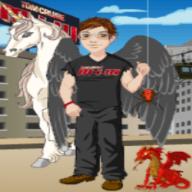我想問下點解"林"時政府會o係1917年10月革命中倒台??
姐係我想知"林"時政府倒台o既因素..
做2006 o既al 試題!唔該晒!!
AL 歷史試題一問!!俄國史!
2006-12-23 6:18 pm
回答 (3)
2006-12-23 6:25 pm
✔ 最佳答案
史托利賓在1906年被任命為總理(Prime Minister或譯為首相),他開始推行改革,他的改革有四部分,廢除共同責任制與土地賠償款;取消累積的欠數與體罰制度,法律前平等精神;由於當時暴亂頻生,史托利賓認為革命分子的煽動是農民暴亂的近因,但根本原因還在於農民太窮,不過增加農民土地並不能解決這個問題,因為從多次的例子顯示,他相信放火毀滅莊園的正是有不少分配土地的農民.所以解決的方法是創造小資產階級(a class of small proprietors)作為政府的基本單位以鞏固政府. 土地與自由是史托利賓改革努力的目標,事實上這也是新民粹主義在農村活動的第一口號.新組成的土地組織委員會 Land Organization Commission 對個人農莊及集體農戶提供了技術援助,農民土地銀行的財產與信用貸款更具體實施,鼓勵了土地個人化與生產現代化.但是土地問題本身的複雜性,卻成為史托利賓改革無法成功的主要原因,由於農村土地長久以來即分成條塊狀,大約分為四十至五十塊,由每一農民家庭所擁有,因此,土地自從農奴時代起便不能重分,在這種情形下,農民通常不以土地調查或法律契約來認定他們的土地,而是口頭約定,經歷了數代才決定的.同時,農民也無法圍起土地,因為會切斷隔鄰與他們自己土地的連接關係.這樣,鄉村土地的管理開發都需要集體的行為,農業改進的方法,便無法由較進步的鄉人成功的實驗來引入,只有由鄉民保守派互相折衷的約定來實施.條塊狀土地的分配,也使得技術改進戛戛乎難哉.
改革的結果,事實是愈重新分配,個人生產改進動機愈低,史托利賓企圖以小資產化的農民的個人生產秩序,來取代村社的集體生產秩序,畢竟不能把地方農民根深蒂固的相互依存關係完全廢掉.
上文取村自段昌國著俄國史
史托利賓在一九一一年九月十四日被警察與革命派聯合刺殺(可見政治手段之卑鄙與污濁),暴風雨快將來臨,強悍的史托利賓再也無力支撐將傾的大廈.1909年德皇威廉二世曾訪俄國,見過史托利賓,交談過,事後大為稱讚,恨德國沒有這樣的人幫他做事.全俄國明理的人都哀悼他.
新任首相史托利賓主持之下,先後頒佈了若干法案,一方面把拘束農民自由的米爾解散,一方面使若干農民個人獲得耕地,這些農民利用政府賦予之便利,全力發展,造成了一批成功的中小農階級.比較保守的大地主,既有沙皇左右之耳目,又在杜馬中擁有力量,對於政府的改革計劃,全力反對.但尼古拉二世對史托利賓始終全力支持,直至一九一一年被刺身死為止.此項改革,並未使立憲民主黨及各社會主義政黨滿意,前者希望建立一個真正的憲政政府,後者為了在將來的革命行動中得到農民的支持,當然不願見到農民對其已獲之土地感到滿意.所幸農民所獲土地仍過少,對革命分子而言,依然有活動的餘地.不過,如果沒有第一次世界大戰爆發,則史托利賓所實行的土地改革,可能也會阻止革命的發生,因為單憑少數勞工階級獨立奮鬥,而無廣大農民階級的協助參加,革命很少成功的機會.
上文取村自李邁先譯西洋近世史
2002年7月21日凌晨 黃老師
史托利賓的照片極少,我在網上只找到一個網頁裡有他的齊全照片,可惜是俄文的網址,無法做聯結,請大家用谷高的圖片搜尋器打上 Stolypin 這個字後,逐幅圖去按,只有兩頁,很快便可找到.
2014-04-13 10:32 am
專辦:
房屋貸款、民間二胎代償、代墊、土地貸款、民間二胎借款、
汽車貸款、中古車貸款、房屋轉增貸、轉貸降息、信用貸款
歡迎你的加入:LineID: hot777
銀行貸款資訊 - 免費諮詢評估 - ( 0986 )-( 377 )-( 776 )
YES貸款理財,提供您提供你最新理債及房屋貸款資訊建議,讓你生活免煩惱。
- -歡迎同業配合- -- -歡迎同業配合- -
銀行貸款資訊 - 免費諮詢評估 - ( 0986 )-( 377 )-( 776 )
推.......推...加油!加油!
房屋貸款、民間二胎代償、代墊、土地貸款、民間二胎借款、
汽車貸款、中古車貸款、房屋轉增貸、轉貸降息、信用貸款
歡迎你的加入:LineID: hot777
銀行貸款資訊 - 免費諮詢評估 - ( 0986 )-( 377 )-( 776 )
YES貸款理財,提供您提供你最新理債及房屋貸款資訊建議,讓你生活免煩惱。
- -歡迎同業配合- -- -歡迎同業配合- -
銀行貸款資訊 - 免費諮詢評估 - ( 0986 )-( 377 )-( 776 )
推.......推...加油!加油!
2013-08-29 6:10 pm
銀行貸款資訊 - 免費諮詢評估 [ *****]-
提供您各家銀行房貸、信貸、銀行二胎、車貸、代償、代墊、負債整合、
民間二胎代償、民間二胎借款、購屋免頭款貸款最新資訊
-歡迎同業配合-
如有任何有關銀行貸款難雜症相關問題歡迎隨時留言與我聯繫討論,為你量身訂做最適合銀行貸款方案馬上解決您錢的煩惱。
這樣回答應該還不錯嘛。
提供您各家銀行房貸、信貸、銀行二胎、車貸、代償、代墊、負債整合、
民間二胎代償、民間二胎借款、購屋免頭款貸款最新資訊
-歡迎同業配合-
如有任何有關銀行貸款難雜症相關問題歡迎隨時留言與我聯繫討論,為你量身訂做最適合銀行貸款方案馬上解決您錢的煩惱。
這樣回答應該還不錯嘛。
2006-12-23 6:32 pm
The history of Russia begins with that of the East Slavs, the ethnic group that eventually split into the Russians, Ukrainians, and Belarusians. The first East Slavic state, Kievan Rus', adopted Christianity from the Byzantine Empire in 988, beginning the synthesis of Byzantine and Slavic cultures that defined Russian culture for the next seven centuries. Kievan Rus' ultimately disintegrated as a state, leaving a number of states competing for claims to be the heirs to its civilization and dominant position.
After the 13th century, Muscovy gradually came to dominate the former cultural center. By the 18th century, the principality of Moscow had become the huge Russian Empire, stretching from Poland eastward to the Pacific Ocean. Expansion in the western direction sharpened Russia's awareness of its backwardness and shattered the isolation in which the initial stages of expansion had occurred. Successive regimes of the 19th century responded to such pressures with a combination of halfhearted reform and repression. Russian serfdom was abolished in 1861, but its abolition was achieved on terms unfavorable to the peasants and served to increase revolutionary pressures. Between the abolition of serfdom and the beginning of World War I in 1914, the Stolypin reforms, the constitution of 1906 and State Duma introduced notable changes in economy and politics of Russia, but the tsars were still not willing to cede autocratic rule.
Military defeat and food shortages triggered the Russian Revolution in 1917, bringing the Communist Bolsheviks to power. Between 1922 and 1991, the history of Russia is essentially the history of the Soviet Union, effectively an ideologically based empire which was roughly coterminous with the Russian Empire. From its first years, government in the Soviet Union was based on the one-party rule of the communists, as the Bolsheviks called themselves beginning in March 1918. However, by the late 1980s, with the weaknesses of its economic and political structures becoming acute, significant changes in the economy and the party leaderships spelled the end of the Soviet Union.
Thus the history of the modern Russian Federation is brief, dating back only to the collapse of the Soviet Union in late 1991. Since gaining its independence, Russia claimed to be the legal successor to the Soviet Union on the international stage. However, Russia has lost its superpower status as it faced serious challenges in its efforts to forge a new post-Soviet political and economic system. Scrapping the socialist central planning and state ownership of property of the Soviet era, Russia attempted to build an economy with elements of market capitalism, with often painful results. Even today Russia shares many continuities of political culture and social structure with its tsarist and Soviet past.
After the 13th century, Muscovy gradually came to dominate the former cultural center. By the 18th century, the principality of Moscow had become the huge Russian Empire, stretching from Poland eastward to the Pacific Ocean. Expansion in the western direction sharpened Russia's awareness of its backwardness and shattered the isolation in which the initial stages of expansion had occurred. Successive regimes of the 19th century responded to such pressures with a combination of halfhearted reform and repression. Russian serfdom was abolished in 1861, but its abolition was achieved on terms unfavorable to the peasants and served to increase revolutionary pressures. Between the abolition of serfdom and the beginning of World War I in 1914, the Stolypin reforms, the constitution of 1906 and State Duma introduced notable changes in economy and politics of Russia, but the tsars were still not willing to cede autocratic rule.
Military defeat and food shortages triggered the Russian Revolution in 1917, bringing the Communist Bolsheviks to power. Between 1922 and 1991, the history of Russia is essentially the history of the Soviet Union, effectively an ideologically based empire which was roughly coterminous with the Russian Empire. From its first years, government in the Soviet Union was based on the one-party rule of the communists, as the Bolsheviks called themselves beginning in March 1918. However, by the late 1980s, with the weaknesses of its economic and political structures becoming acute, significant changes in the economy and the party leaderships spelled the end of the Soviet Union.
Thus the history of the modern Russian Federation is brief, dating back only to the collapse of the Soviet Union in late 1991. Since gaining its independence, Russia claimed to be the legal successor to the Soviet Union on the international stage. However, Russia has lost its superpower status as it faced serious challenges in its efforts to forge a new post-Soviet political and economic system. Scrapping the socialist central planning and state ownership of property of the Soviet era, Russia attempted to build an economy with elements of market capitalism, with often painful results. Even today Russia shares many continuities of political culture and social structure with its tsarist and Soviet past.
收錄日期: 2021-04-13 15:17:17
原文連結 [永久失效]:
https://hk.answers.yahoo.com/question/index?qid=20061223000051KK00778

